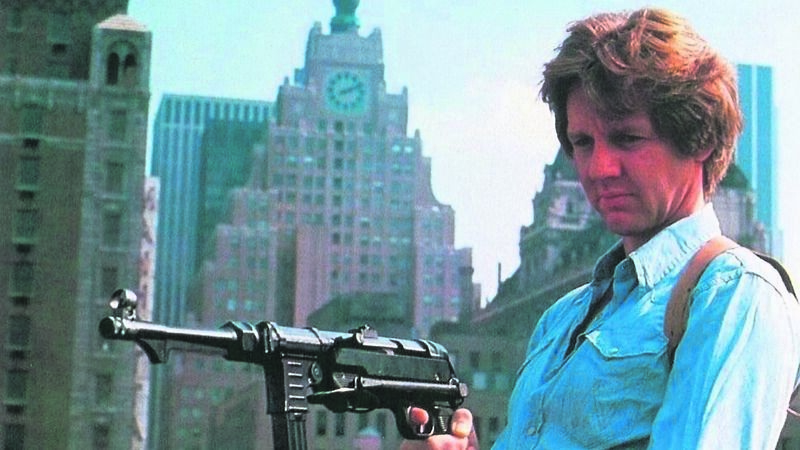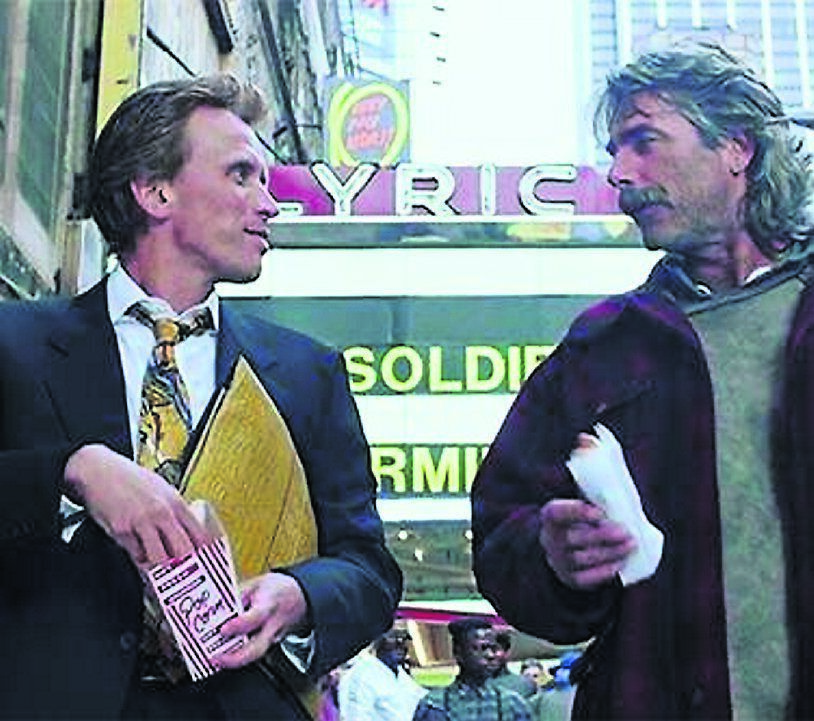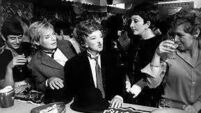Triskel devotes night to work of US film-maker James Glickenhaus

A scene from The Exterminator - one of the hit films made by James Glickenhaus which are being screened at the Triskel event tomorrow
James Glickenhaus is a filmmaker who emerged in the 1980s and infused exploitation cinema with a slick, high-octane edge.
He delivered brutal vigilante justice, Cold War paranoia, and explosive action with unapologetic flair. His films weren’t polished; they were raw and relentless. Glickenhaus skilfully balanced indie grit with commercial appeal, all while maintaining his outsider edge.
Triskel Cinema is bringing Cork audiences the chance to experience Glickenhaus’s work in New York! Action! Sleaze! James Glickenhaus Double Feature on Friday, August 22.
Exploitation films, defined by their lurid content, loud style, and unapologetic rawness, established a distinct place in the history of cinema. Emerging in the 1960s and 1970s, these gritty, low-budget movies thrived on sensationalism and delved into taboo subjects.
The 1980s witnessed a surge in exploitation cinema, characterised by even more intense violence, bolder themes, and significant cultural impact. Glickenhaus’s contribution to the genre is immense.
Neil Jackson, Senior Lecturer in Film Studies at the University of Lincoln, is an expert in Glickenhaus’s work and will take part in a conversation about the director with Triskel’s Head of Cinema, Chris O’Neill tomorrow.
Jackson explains why people should take note of Glickenhaus’s films. “Whether as a producer, director, or writer, James Glickenhaus should be counted as one of the key figures in the realm of exploitation cinema in the 1980s. He was heavily involved in this realm at a time when such films were making a gradual transition from theatrical distribution to the home video market.”
Jackson says that Glickenhaus’s film Tin Soldier far surpassed the Bond films which revolved around the Cold War.
“Several titles from his filmography such as The Exterminator and Blue Jean Cop have become firm fan favourites with a dedicated cult following, while I would argue that his cold-war secret agent thriller, The Soldier, is far superior to anything that the 007 producers were cynically churning out as Roger Moore came to the end of his tenure as James Bond.”
Business and creativity rarely meet successfully, but Jackson says that Glickenhaus was a skilful businessperson and a creative who managed to combine his two assets: his ability to balance the books and create top-notch action films.
“Glickenhaus never tried to hide behind any aspirations to art, and he was always honest about his status as a business-minded operator, but he still managed to create action-oriented work that belied budgets that were significantly lower than the Die Hard and Lethal Weapon movies that began to dominate the action market by the end of the 1980s.”
The lecturer says it is time that Glickenhaus’s contribution to film is recognised. “A career length retrospective is long overdue, and this event at the Triskel is hopefully a small step towards encouraging that.”
Chris O’Neill is excited to bring Glickenhaus’s work to Triskel.
“ The Exterminator and Blue Jean Cop double feature at Triskel Arts Centre is a salute to the director James Glickenhaus,” he said.
“He was an independent filmmaker who went into the business to make movies his own way, and he was able to do this throughout the ’80s and into the ’90s.”
O’Neill says The Exterminator was Glickenhaus’s second feature film, and it was a huge international hit which begins with a ‘bang’, quite literally: “the opening shot is of a man being flung through the air from an explosion.”
“First and foremost, it’s an action thriller with shootings and explosions, but it also has a resistant and down-to-earth hero. Robert Ginty is great in the central role, ‘the man they pushed too far’, as the posters proclaimed, which gives the film some emotional depth.
“Its depiction of New York of 45 years ago is gritty and atmospheric; the film is truly a document of a very different time.”
The lead character, John Eastland, played by Ginty, is a Vietnam veteran who becomes a vigilante after his best friend is brutally attacked. The film’s strong Vietnam War trauma undertones make it both an action film and a commentary on post-war disillusionment.

The film was controversial at the time of release due to the level of violence in the story. It was edited for release in some countries. The Triskel screening will show the original uncut version of the film.
In an interview a few years ago, Glickenhaus explained his use of violence. “It was a time in which violence was on everybody’s mind, because of the war in Vietnam. And television and film had sanitised violence for a long time. But violence is pretty unpleasant, and I thought I had an obligation to portray it that way.”
The second film in the series is Blue Jean Cop, which O’Neill says is one of his stand-outs from the genre.
“ Blue Jean Cop is one of my personal favourite ‘buddy’ action movies of the era: you have Peter Weller, who starred in Robocop, and Sam Elliott, who appeared in Roadhouse, going up against powerful, corrupt cops. There are plenty of action set pieces, plus a sharp and witty script for the two actors to bounce off one another.”
O’Neill hopes film-goers will take advantage of this opportunity to see Glickenhaus’s work on the big screen.
“Not only are we screening both movies, but Neil Jackson and myself will be hosting an on-stage chat discussing them and the work of James Glickenhaus in general, and all for the price of one ticket. It should be a fun night.”
New York! Action! Sleaze! James Glickenhaus Double Feature plays in Triskel Cinema on Friday, August 22 - see www.triskelartscentre.ie.







